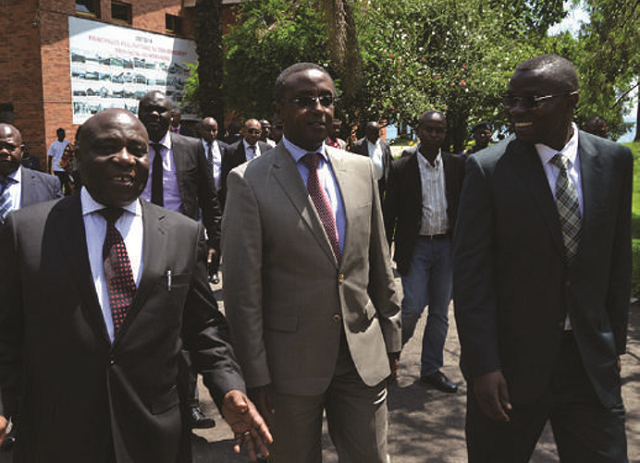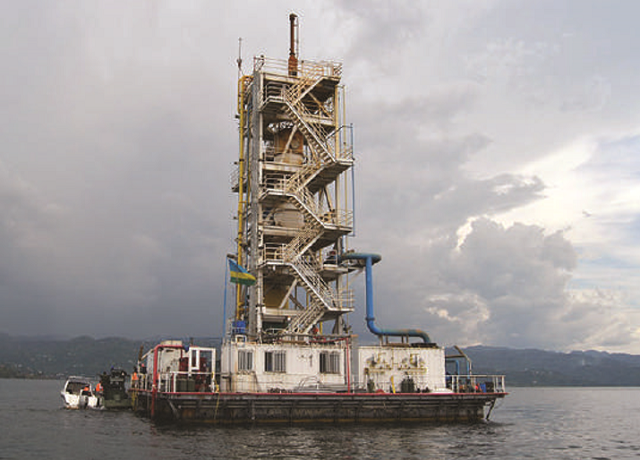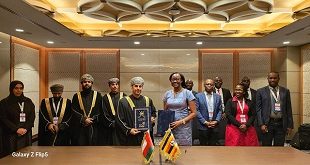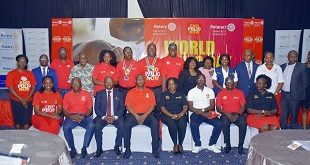
The Democratic Republic of Congo and Rwanda have signed a five-year joint exploration agreement for oil under Lake Kivu.
The agreement follows a similar one between Tanzanian President John Pombe Magufuli and Congolese President Joseph Kabila in 2016. The two leaders signed a memorandum of understanding to jointly explore the petroleum potential of Lake Tanganyika, which cuts across both countries.
Rwanda’s prospects are based on oil exploration ventures that have confirmed petroleum deposits in lakes Albert and Tanganyika which are located in the same areas on the border between Uganda and the DR Congo and are in the same basin as Lake Kivu.
According to one report, an official of the DRC’s Information Ministry, Raphael Mukendi told journalists that the agreement was signed recently by DRC’s Minister for Hydrocarbons Aime Ngoi-Mukena and Rwandan Minister for Natural resources Vincent Biruta.
“The two countries signed an agreement in which they agreed to work together in exploring for oil in Lake Kivu. They will carry out joint exploitation of oil resources in Lake Kivu if any hydrocarbons are discovered under the shared cross-border area of the lake,” he said.
He added that according to the agreement, the two countries will share technical and geological data obtained during exploration.
In 2014, an oil survey exercise in Rwanda discovered that the Lake Kivu basin was favorable for oil and gas exploration.
Lake Kivu lies on the border between the Democratic Republic of the Congo and Rwanda in the Albertine Rift valley. It is approximately 90 kilometers (56 miles) long and 50 km (31 miles) wide.
In February 2017, a Rwandan firm, Ngali Mining company won petroleum exploration rights in Lake Kivu.
Rwanda has been pushing to start the search for hydrocarbons in Lake Kivu since it was confirmed in 2014 that the Eastern Kivu Basin is favourable for oil and gas exploration.
But the efforts were frustrated when initial reports that the Chinese company BGP proved unreliable although sources said a draft contract had been adopted.

Earlier, another contract with a Canadian compony, Vanoil, also hit a dead end. Rwanda has a law under which any petroleum exploration and production license expires after three years although companies can get investment licenses for up to 25 years.
The Rwanda government has been in talks with Ngali Mining for sometime and it is expected that the project will now take off without delay.
The Deputy Director General of Geology and Mining at the Rwanda Natural Resources Authority, Dr Emmanuel Munyangabe, early this year told a local newspaper that exploration activities will be carried out within four months.
He said the geochemical and geological surveys will focus on confirming if there is oil in the lake. In 2016 Rwanda opened a Methane Power Project on Lake Kivu. Billed as the first-of-its-kind project, KivuWatt is a $200 million facility that is the only industrial-scale plant of its kind in the world. It draws up water from an offshore barge, siphons off the methane, and pipes it to a 26-megawatt power plant on shore. It was developed by the the U.S. energy company Contour Global.
According to reports, in a planned second phase, Contour Global plans to build two or three more barges, ramping up capacity to 100 megawatts. Another U.S. firm, Symbion Power, signed an agreement with the Rwandan government to build a 50-megawatt project last December.
The KivuWatt barge, which is anchored 13 kilometers offshore, draws up water from 350 meters below the surface, extracts the methane, and sends it to an onshore power plant.
****
editor@independent.co.ug
 The Independent Uganda: You get the Truth we Pay the Price
The Independent Uganda: You get the Truth we Pay the Price


